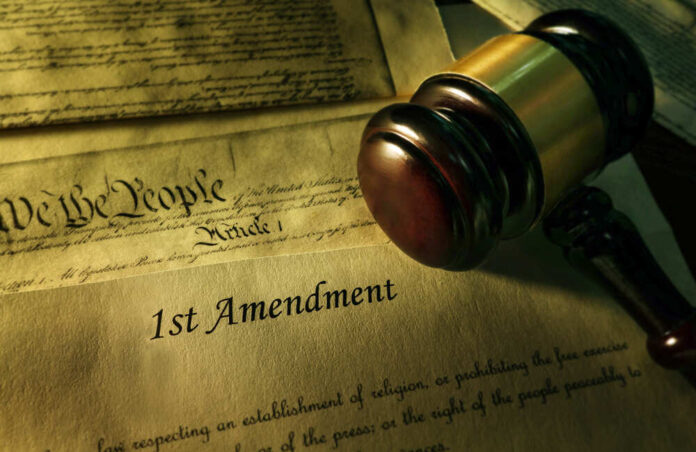
(TheLastPatriotNews.com) – Drawing concerns over First Amendment issues, Douglass Mackey, a social media influencer with a significant following of over 58,000 on Twitter, faced legal consequences this week due to a meme he posted during the 2016 election. He was handed down a sentence of seven months in prison.
In March, a jury had found Mackey guilty of conspiring to strip people of their right to vote. This charge carried the weight of a potential 10-year prison sentence.
The crux of the matter was a misleading meme he shared. The meme was designed as a fake flier, urging supporters of Hillary Clinton to bypass traditional voting methods and instead vote from home through a text message.
The meme’s content read: “Avoid the line. Vote from home,” guiding readers to “Text ‘Hillary’ to 59925. Vote for Hillary and be a part of history.” A subtle disclaimer at the flier’s base mentioned that this voting method was invalid in several places, including Guam, Puerto Rico, Alaska, or Hawaii.
However, the meme wasn’t Mackey’s only controversial activity. Prosecutors revealed that Mackey was part of exclusive Twitter groups where he collaborated with others to spread misleading information that aimed to influence the 2016 presidential election.
Reacting to the jury’s decision in March, Breon Peace, the United States Attorney for the Eastern District of New York, stated, “Mackey has been found guilty by a jury of his peers of attempting to deprive individuals from exercising their sacred right to vote for the candidate of their choice in the 2016 Presidential Election. Today’s verdict proves that the defendant’s fraudulent actions crossed a line into criminality and flatly rejects his cynical attempt to use the constitutional right of free speech as a shield for his scheme to subvert the ballot box and suppress the vote.”
However, the case against Mackey raised eyebrows among First Amendment experts. They voiced concerns about the potential misuse of the law to target statements made about political matters or elections.
Aaron Terr, representing the Foundation for Individual Rights and Expression, said in April, “If that vague language covers speech that deceives people into voting improperly, it raises the troubling possibility of the government also applying it to allegedly false statements about political issues or candidates that discourage people from voting, not just misrepresentations about the logistics of exercising the franchise.”














